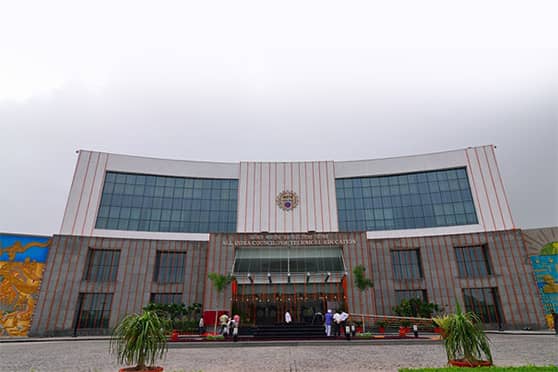AICTE extends ban on setting up new engineering colleges for 2 more years


All India Council for Technical Education (AICTE) has extended the moratorium on setting up new engineering institutes for two more years with certain exceptions, chairperson of the technical education regulator Anil Sahasrabudhe has said.
The move comes after a government-constituted panel had recommended the continuation of the ongoing moratorium. The AICTE imposed a moratorium of two years to grant new colleges approvals in 2020.
"The AICTE has extended its moratorium on establishing new engineering institutes up to two years with certain exceptions," Sahasrabudhe said.
AICTE will consider establishing new colleges if a state government proposes to start a new polytechnic in conventional, emerging, multidisciplinary, vocational areas including public-private partnership (PPP) model.
Any industry having a minimum annual turnover of Rs 5,000 crore in the preceding three years and registered as a trust, society, company established under Section 8 of the Companies Act, 2013 is also exempted from the moratorium.
Besides, philanthropic organisations existing for over 25 years and running other educational institutes having a minimum enrolment of 10,000 students and NIRF ranking up to 100 in the preceding year have been exempted from the ban.
AICTE had constituted a committee in 2018 under the chairmanship of BVR Mohan Reddy, chairman of the Board of Governors, Indian Institute of Technology (IIT) Hyderabad on short-term and medium-term prospective plans for engineering education.
The committee observed that the capacity utilisation (intake capacity versus enrolment) in undergraduate and postgraduate levels was 49.8% during 2017-18. The committee had recommended that no new capacity be approved by the AICTE starting from the academic year 2020 and the creation of new capacity can be reviewed every two years thereafter.
"More than 40% of the essential requirements already demanded by the council from its approved institutions are NEP compliant. It is pertinent to mention that in the previous academic year, the council took a step forward to diminish the subject barrier by including a total of 14 subjects studied in various school education boards across the country to make them eligible for pursuing technical education courses offered by the council," Sahasrabudhe said.
"The same gained quite a traction across the academia in the country. To clear the perception of Multiple Entry Multiple Exit (MEME) and bridge courses, the council in its approval handbook this year has included an eligibility table depicting course-wise subject eligibility for admission to various branches of engineering and technology," he said.